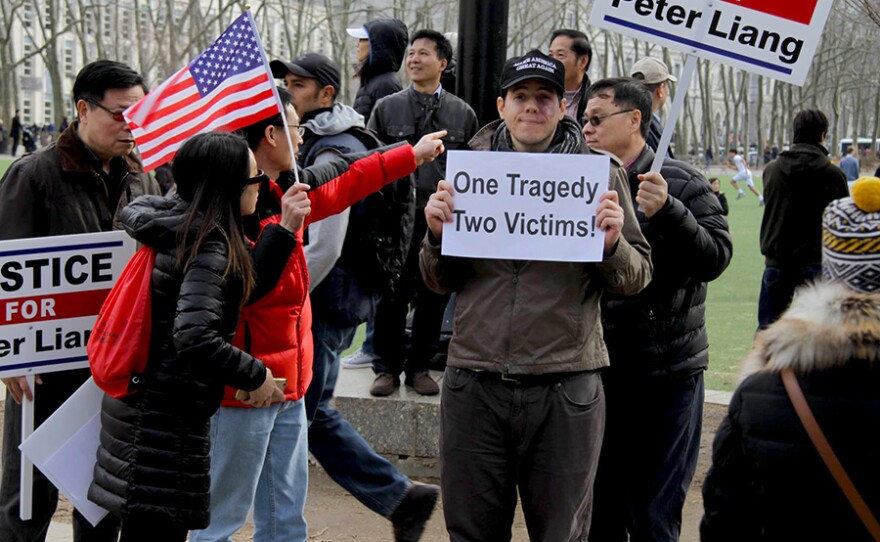—Documentary Casts an Insightful Light on the Complexities of Police Reform in an Uneven Criminal Justice System—
On a fall night in 2014, Peter Liang, a Chinese American police officer, shot and killed an innocent, unarmed Black man named Akai Gurley. The event unfolded in a dark stairwell of the Pink Houses housing project in Brooklyn, New York. While conducting a routine patrol of the building, Liang fired his gun — the bullet ricocheted off of a wall and fatally struck Gurley.
"Down A Dark Stairwell" chronicles the tragic shooting of Akai Gurley and the trial and subsequent conviction of NYPD officer, Peter Liang, casting a powerful light on the experiences of two marginalized communities thrust into an uneven criminal justice system together.
Directed by filmmaker Ursula Liang, no relation to officer Peter Liang, the film will make its broadcast premiere on PBS’s INDEPENDENT LENS.
With the country reeling from the killings of Eric Garner and Michael Brown, and activists nationwide calling for police reform, Gurley’s death further inflamed the residents of New York City. Cries of police brutality rang out to join a chorus protesting the recent police killings of unarmed Black men.
Peter Liang joined a high-decibel national conversation about race and the justice system, one that continued to crescendo when just days later an officer in Cleveland, Ohio, shot and killed a 12-year-old African American boy playing with a toy gun.
In this anguished debate, a rallying point was the pronounced pattern of police officers, mostly white, avoiding criminal prosecution. Liang, however, was hit with a charge of second-degree manslaughter, making him the first NYPD officer in over a decade to hear a guilty verdict in such a case.
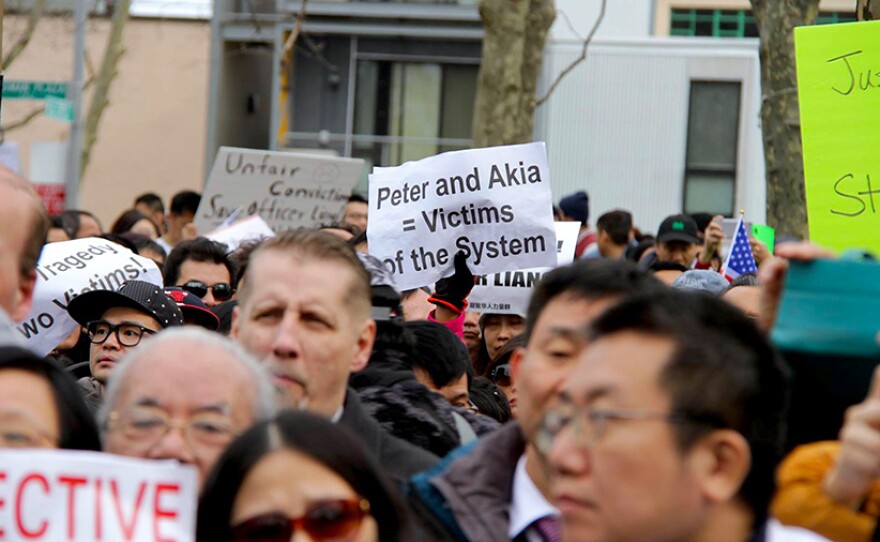
This triggered a fresh wave of debate, including protests across New York City in support of Liang, with activists speaking out against the unjust treatment of Asian Americans and racial imbalances in the American legal system, calling into question whether his conviction was offered up in part to quell larger national unrest.
Filmed as these events unfolded, and featuring interviews with Akai Gurley’s family and loved ones, local community members, and activists and organizers within the Asian American and African American communities, "Down A Dark Stairwell" offers an intimate look at the painful aftermath of Gurley’s death.
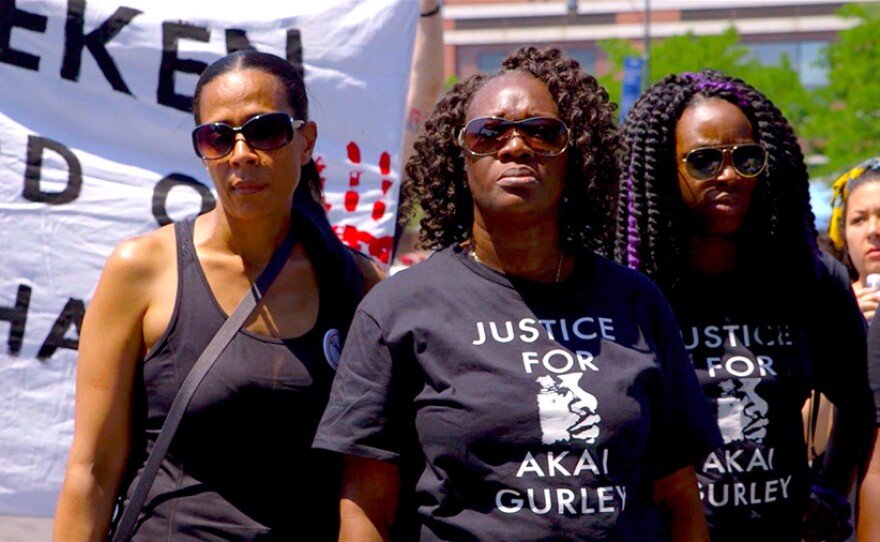
The film examines the notion of systemic oppression created by an uneven system, and acts as an entry point to a powerful and nuanced discussion about race, policing, and justice in the United States.
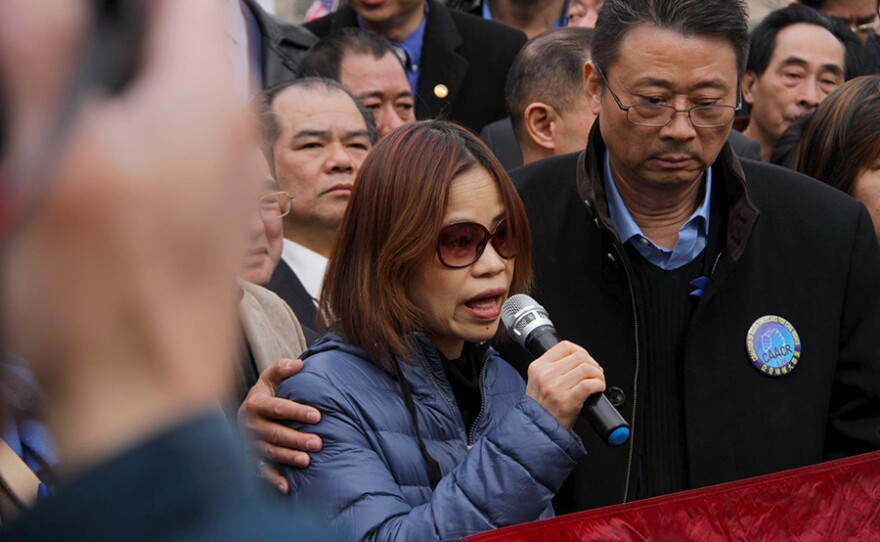
“The scale of the protests related to this case were unlike anything I had seen before in the Asian-American community, and I was driven to capture history as it happened,” said filmmaker Ursula Liang. “My goal was to look for intimate and honest conversations that would help people understand what happened in a different way than what was being presented in short-sound bite media coverage, and to listen to what’s actually being said. My hope is that the film helps to create a space for new conversations about race, justice, and coalition building, and challenges audiences to question who really benefits when legacies of solidarity are disrupted.”
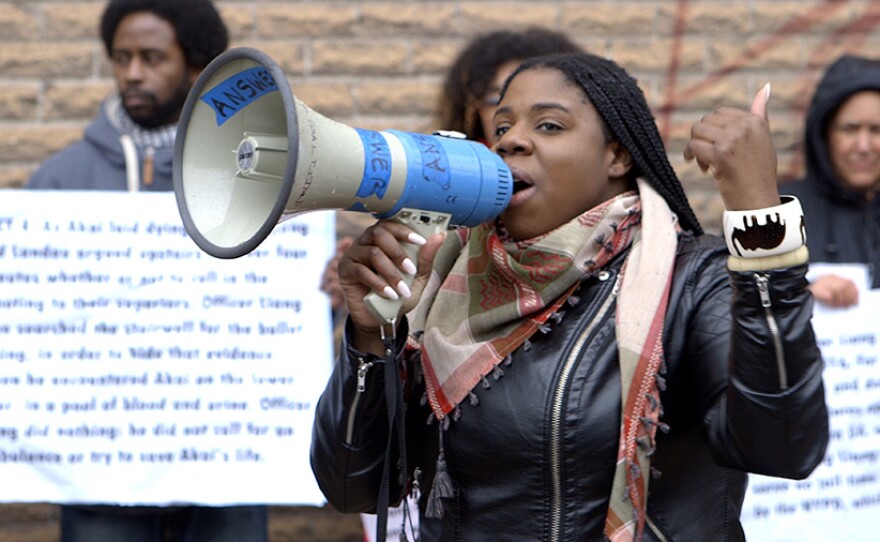
Watch On Your Schedule:
With the PBS Video App, you can stream your favorite and local station shows. Download it for free on your favorite device. The app allows you to catch up on recent episodes and discover award-winning shows.
This episode will be available simultaneously with the broadcast on the INDEPENDENT LENS website, PBS.org and the KPBS Video Player for a limited time.
Extend your viewing window with KPBS Passport, video streaming for members supporting KPBS at $60 or more yearly using your computer, smartphone, tablet, Roku, AppleTV, Amazon Fire or Chromecast. Learn how to activate your benefit now.
Join The Conversation:
INDEPENDENT LENS is on Facebook, Instagram, and you can follow @IndependentLens on Twitter. #IndieLensPBS
Credits:
A co-production with ITVS and CAAM, and part of a five-year pipeline of criminal justice content presented by INDEPENDENT LENS under its Stories for Justice public media partnership. Through a groundswell of more than 20 documentary films and docuseries about the racial inequities of the criminal justice system, the public media partnership aims to increase understanding and inspire local communities to support reform. Directed/ Produced by: Ussula Liang. Producer: Rajal Pitroda. Executive Producers: Sally Jo Fifer and Lois Vossen. Written by Michelle Chang, J.M. Harper and Ursula Liang. Edited by Michelle Chang and J.M. Harper.

